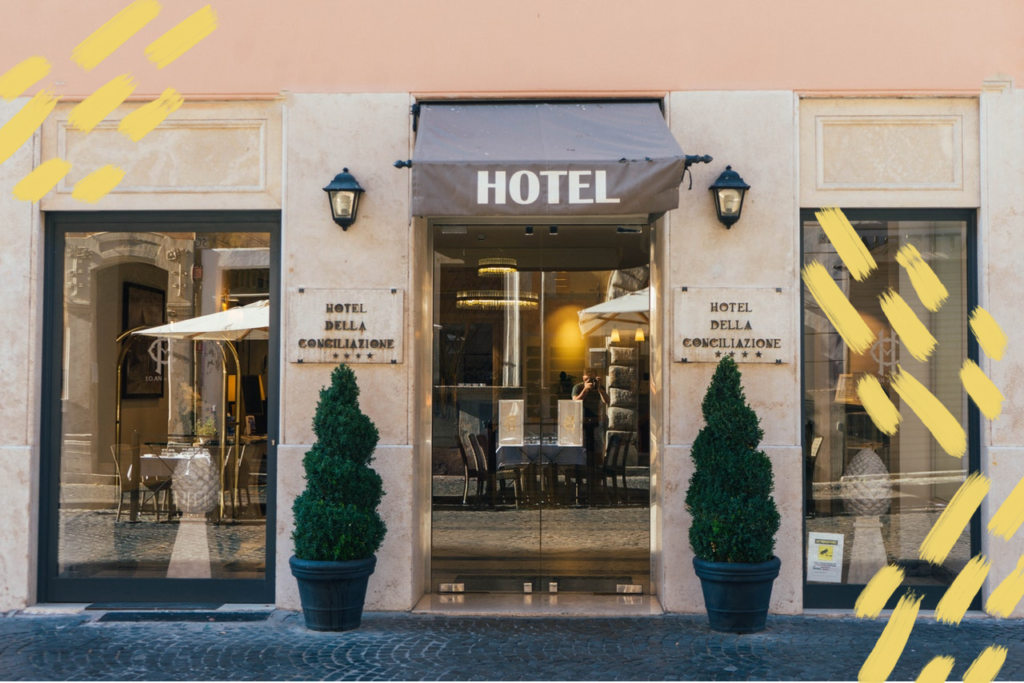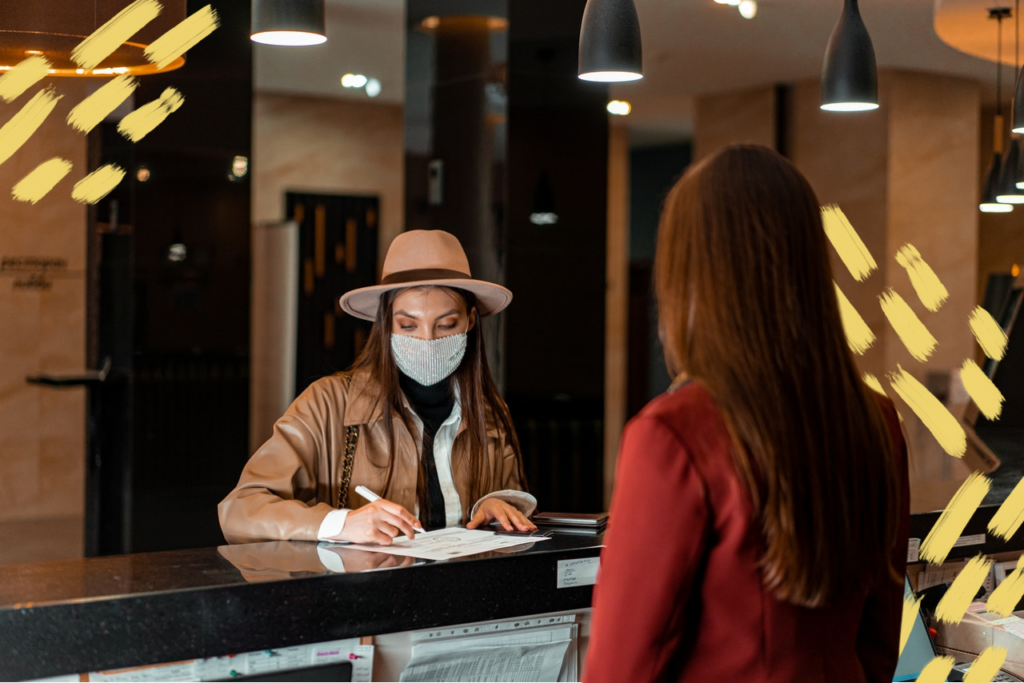No matter how much time you spend researching a holiday destination, we’ve all experienced hotels, hostels and Airbnbs that don’t quite look like the pictures advertised.
We’ve all felt our hearts sink at least once when entering a hotel room for the first time, only to be met by the smell of damp, the sight of outdated decor, and a sense of dinginess you thought you left behind in your university halls.
Have you ever been so frustrated by what you’ve walked into that you wanted to put the website’s photos side by side with reality for all to see? Since you can’t exactly return a bad holiday, it’s essential you distinguish the properties that oversell themselves from the genuine articles; you know the ones that make you go ‘’wow’’ when you step into the lobby, and the rooms that you never want to leave (you probably should leave your room; you’re on holiday, after all).
And remember; if it’s too good to be true, it probably is. Here are 8 hacks to check that your hotel is the real deal.
Tripadvisor Photos
You probably already use TripAdvisor every time you book anywhere, even a local restaurant, if only for the often hilarious responses from the owners to negative reviews.
While you can’t trust every review you read on there, since people are naturally drawn to the complaining in this country, you can usually trust the photos, which give a more accurate depiction of how things look within a venue, without the sheen of photoshop, editing software and staging.
Unlike travel companies, the average reviewer isn’t paid (usually) to take photos of the hotel in a favourable light, so has no reason to show you anything but the reality, good or bad.
Of course, approaching reviews with the requisite caution is recommended, whether that’s on Tripadvisor, or on one of the many other hotel review sites, such as Oyster, Expedia, Booking.com, Trivago, and even Google and Facebook reviews.
Be aware that influencers, social media savants, disgruntled rivals or slighted guests may all have an agenda, either to post overly fawning or outrageously critical reviews, and each and every one should be treated with caution.
Look out for those reviewers with suspect, computer-generated usernames (John948433939382, stand up), and disregard any who only post a single review, as these have almost certainly come from a bot-farm. Instead, scrutinise the photographs on Tripadvisor for clues, like a detective doing their due diligence, only for holidays.
Read: 4 IDEAL tips for navigating online reviews

Use Google Street View
Before booking any city hotel, take a virtual walk around the neighborhood using Google Street View. While the images might not be current, they can give you a good sense of the area’s safety, cleanliness, and convenience. Look for things like proximity to public transport, the general upkeep of nearby buildings, and whether the hotel’s exterior matches their website photos. Just remember to check when the Street View images were taken – there’s usually a date stamp in the corner. This can be particularly helpful in urban areas where the immediate surroundings significantly impact your stay.
Browse The Website
Planning your holiday through a booking website – a middleman, if you will – is the easiest and most common method of finding holiday accommodation, but if that’s your plan, you should always check your chosen hotel’s website, too.
If the hotel you’re eyeing up doesn’t have a website (or, if it redirects you to Facebook), that’s a red flag right there. If they haven’t made the effort or got the budget for a website, what else are they skimping on?
The website (or your booking mediator) may also provide information about when the hotel, rooms and shared spaces were last updated or renovated – as a guide, if this has happened in the last four years, you’re probably safe. Any older than that and you might find an antiquated space not in line with your expectations.
Always Read The Fine Print
A maxim for life, this one, and certainly true when booking a hotel.
This is more about the cost than the quality of your stay, sure, but let’s be honest here; how can you comfortably enjoy your holiday with the threat of additional, hidden fees looming over you? If you use a booking site, you may have to either pay online or be expected to pay at the hotel itself – this is where extra costs may appear, unannounced and uninvited.
Just as flight companies are known for doing, some booking sites will purposefully try to hide certain information from you, especially when it comes to additional fees. Before you book, be sure to read the fine print and check for anything that looks suspicious. Some classic hidden fees to look out for include:
- Resort fees, which are sometimes referred to as an ‘urban’ or ‘destination’ fee and most commonly found in the US, charge you for on-site amenities, regardless of whether you used them or not.
- In-room safes, which you pay for the privilege of using, even if you don’t.
- Additional person fees. If you’re travelling as a couple, some hotels will charge you an additional fee for that second person.
- Early or late check-in fees. Yep, while this one is pretty self-explanatory, it’s still inexplicable.
- Wi-Fi fees. Sure, many hotels offer complimentary Wi-Fi, but many will charge extra for this.
If the fees start to add up, or the services provided aren’t quite as they seemed on the rest of the listing, then it might be worth choosing somewhere different.

Too Good To Be True?
Have you ever seen an absolutely stunning hotel advertised, with everything you’re looking for, even the things on your ‘nice to have’ list, at a too-good-to-be-true price? Be wary. Be very wary.
Aside from being wary, there are a few things to do to check if your potential accommodation is good or too-good-to-be-true. Firstly, research other accommodation options in the area. Are the prices in line with your chosen one? If not, there’s almost certainly a reason the prices are so low, and it might be a red flag. We all love a good deal, but be suspicious – you’d expect the best hotels and resorts to be pricey because they provide quality services. It just makes sense.
Also (and we do realise this sounds rather silly), check that the price displayed in your hotel search is for the entire length of your holiday, rather than for a single night. Each and every accommodation booking platform – whether it’s for a rental home or hotel – displays things slightly differently, and sometimes, what appears to be a fantastic price for a 5 night stay turns out to be an exorbitant price for just one night.

Cross-Reference Across Multiple Platforms
Just as TripAdvisor reveals a hotel’s true colours, it’s worth broadening your search across multiple booking platforms. Each site can show different perspectives, photos, and importantly – pricing. Specialist platforms often reveal hidden gems and better deals. Daybreakhotels.com, for instance, specialises in luxury hotel bookings at significantly reduced rates (up to 75% off) by offering daytime access. While this might sound too good to be true – remember our earlier point about suspiciously low prices – in this case, the discounts are legitimate since you’re booking premium hotels during their quieter daytime hours.
When using any specialist booking platform, apply the same verification tactics we’ve discussed: cross-reference the hotel on other sites, check recent guest photos, and read current reviews. This extra diligence helps ensure you’re getting both a genuine deal and the quality you expect, whether you’re booking for overnight or daytime use.
Check Real-Time Social Content
Browse recent public posts and location tags on social media platforms like Instagram to see current, unfiltered snapshots of the hotel. Unlike professional photos that might be years old, these give you a real-time view of the property. Focus on public posts that show common areas, room views, and amenities – especially those posted during the season you plan to visit. This can reveal whether that “oceanfront view” is really as advertised or if the “recently renovated” pool area actually matches current photos. Look for recurring themes in captions and comments, but stick to publicly shared content rather than reaching out to individuals directly.
Call The Hotel
This is a bit of a sneaky/cheeky one, but it’s a really quick and easy test of the superficial standards of a place. By calling the hotel, you can get a good idea of what their customer service is like. Are they friendly, helpful and accommodating? Great, they’re still an option. But if you get bad service, either they don’t answer, don’t call you back, or are just plain rude, then we think it’s safe to assume that their service standards might not be up to scratch.
You can ask something like “do you have capacity on [insert date]?” They’ll probably just tell you to book online, but it’s all about how they tell you that. And yes, it might just be that that one person is having a bad day, but are you willing to take that risk?
The Bottom Line
The ultimate goal of a hotel is to make a profit from people like you with whatever marketing tactics work, that’s just life. But that doesn’t mean you can’t use a few tactics of your own. Hopefully with the help of these simple hacks, you can find your dream hotel and enjoy a truly amazing getaway! And when you do, would you mind if we tagged along?





